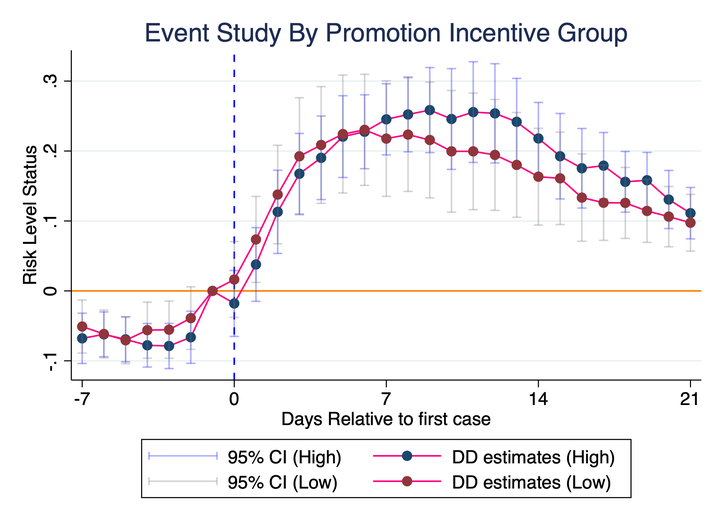
Abstract
This study investigates the compliance of local Chinese officials with the zero-Covid policy throughout the COVID-19 pandemic. By examining biographical data from political elites and using a prefecture-day data set on risk levels – an indicator reflecting the status of zero-Covid policy - we discover a significant impact of prefecture leaders' promotion incentives on their response to COVID-19 outbreaks. Our empirical analysis reveals that leaders with stronger promotion incentives tend to exhibit increased reactions to emerging cases. Evidence shows that such a phenomenon is driven by the different choices of the prefecture leaders facing relatively larger-scale COVID-19 outbreaks. Furthermore, local governors whose jurisdictions are more economically developed tend to enforce more stringent mobility restrictions. However, for prefecture leaders who oversee more developed regions and possess strong promotion incentives, the combined effects of these two factors tend to balance each other out in terms of pandemic response. These results suggest a natural tension between demands for crisis management during the pandemic and routine performance in economic development within the political framework of China.